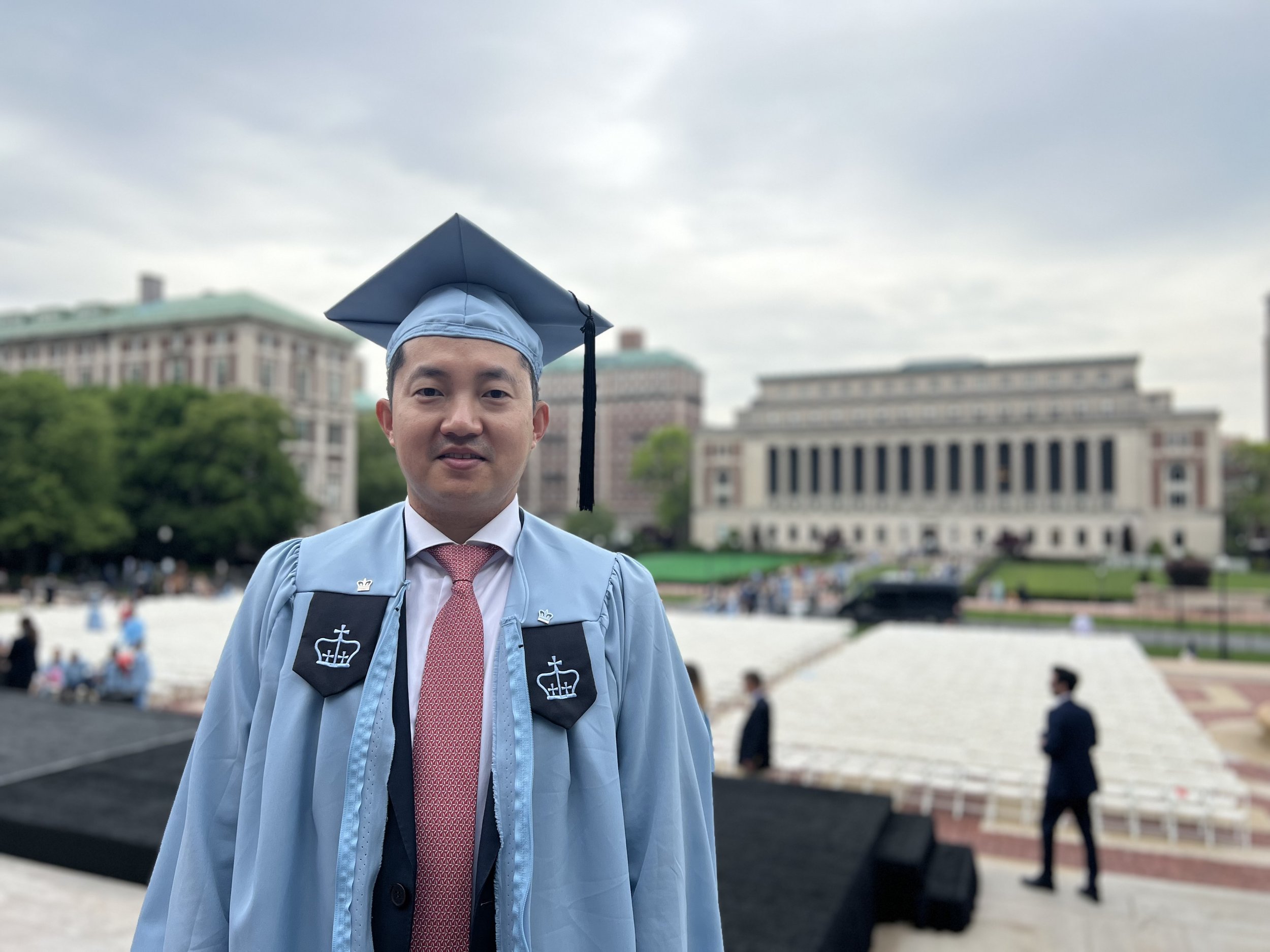He’s a North Korean Defector but Still Hopes That One Day, He Can Go Back
Chloe Yeo
July 27, 2024
2013 in Pyongyang, North Korea was a dark period. Kim Jong Un executed North Korea’s top official and his very own uncle, Jang Song Thaek. This execution initiated a series of government purges, and as tribulation spread throughout the nation, a high-ranking North Korean family was plotting their escape. In October of 2014, Hyun-Seung, or Arthur Lee escaped with three members of his family.
Mr. Lee grew up in Pyongyang, the nation’s capital, where his father was a high-ranking official for the North Korean government. Mr. Lee joined the military at seventeen, and while his service “wasn’t exceptional,” he was adopted into the cut-throat nature of North Korea’s military. He recalls how far people would go to escape military service,
“The first day, I arrived at a military base, and I saw nine people without two fingers….I asked a decennial official and he just told me they didn't want to serve in the military. They weren't discharged from the military, so they cut their fingers by themselves. In the North Korean military, there was a rule that if you lost two fingers, you were automatically discharged.”
Mr. Lee still revisits these uncomfortable memories every so often despite it being a decade since his departure.
During his escape to South Korea, he changed his name, birthday, and even his family background. Mr. Lee never felt a drastic loss of his cultural identity during his defection because “in North Korea, [cultural identity] is blocked by the regime. They don’t allow people to think about it in that way.”
Regions in North Korea aren’t distinctly divided. Since North Korea is a one-party system, the country doesn’t allow local governments or people to accumulate power against each other or the government. Across the regions, people rarely celebrate cultural traditions, as they are banned. According to North Korean ideology, all of its citizens are a part of the Kim Family; their father is technically Kim Jong Un.
Mr. Lee elaborates on the mystification of his cultural identity: “My name is Lee. I might be from the Chosun dynasty because the King’s last name was Lee. It doesn’t exist anymore. I cannot check my tradition and history.” Due to the stigmas surrounding North Korean refugees in South Korea, Mr. Lee has to be cautious about acknowledging his cultural identity. Due to his educational opportunities outside of North Korea, Mr. Lee is just as knowledgeable and successful as South Koreans, yet he’s still pressured to hide his North Korean identity from South Korean society.
Since North Korea deeply values unification, Mr. Lee had a hard time adapting to the concept of discrimination and stereotypes against North Koreans once he was outside of the regime. His educated and privileged background negates the stereotype surrounding North Korean refugees as poor and helpless. Mr. Lee confesses that while some people mean well, they automatically assume that “Oh, escapees, they don't know anything.”As a result, many North Korean defectors are infantilized or perceived as homeless and needy regardless of their position in North Korea.
While Mr. Lee grew up in a privileged family, his defection forced him and his family to start from scratch. Mr. Lee waited tables and worked valet while simultaneously learning English. In 2017, The Washington Post interviewed Mr. Lee about his life in Pyongyang and came up with the term “Pyonghattan,” drawing parallels between the two wealthy regions. While the article exaggerates the luxury of Pyongyang’s 1%, Mr. Lee rejects the idea of Pyongyang’s aesthetic similarity to Manhattan. He believes that the “American media highlights the 1% as cold, loyal people to the regime, but I don’t think [North Korean elites] have massive privilege.” The elite in the regime don’t have private assets or money, so ultimately they are “still victims of the regime,” Mr. Lee explains.
Mr. Lee continues to share his defection experience with others and answer questions about North Korea. He explains “It's life. Sometimes you don't want to explain too much. I have to explain. And sometimes, you know, I want to because it's more beneficial for people to understand North Korea correctly.” He proactively utilizes his freedom of speech and access to information to destigmatize North Korea. Mr. Lee is a global changemaker involved with various organizations, but he still thinks of his childhood home affectionately. “Whether I like it or not, or whether the country is right or not, I think North Korea is still my home. My goal is to make North Korea an open society so that I can go back and see some of my old friends,” Mr. Lee emphasizes wistfully.
